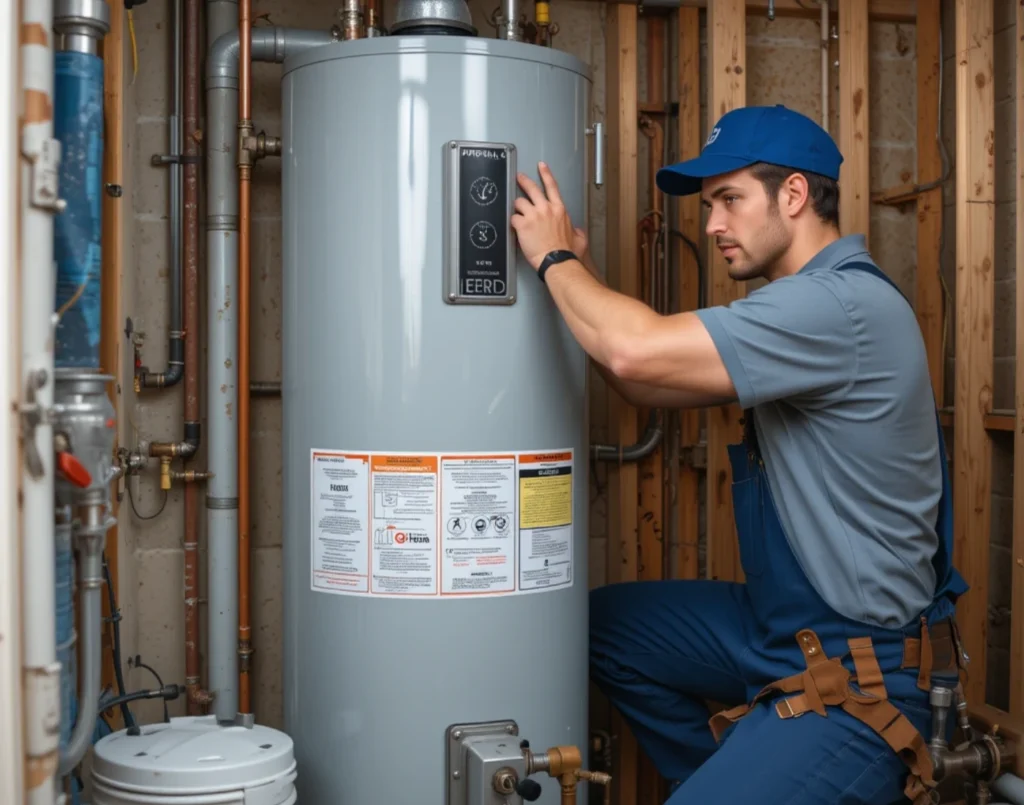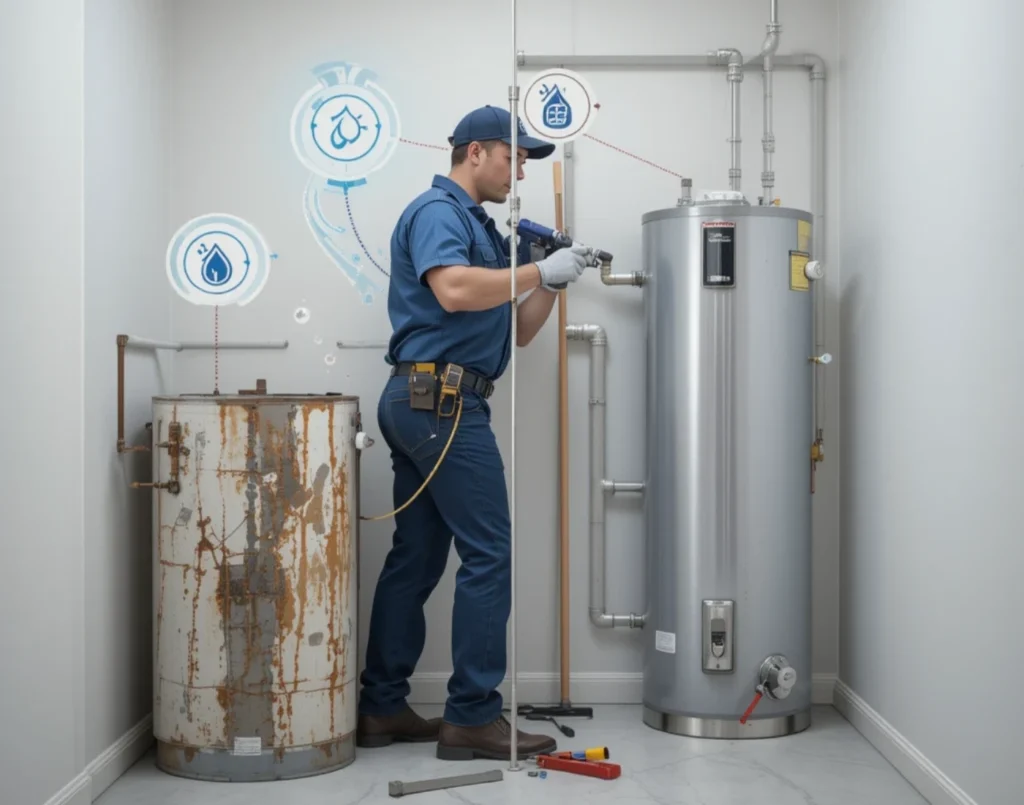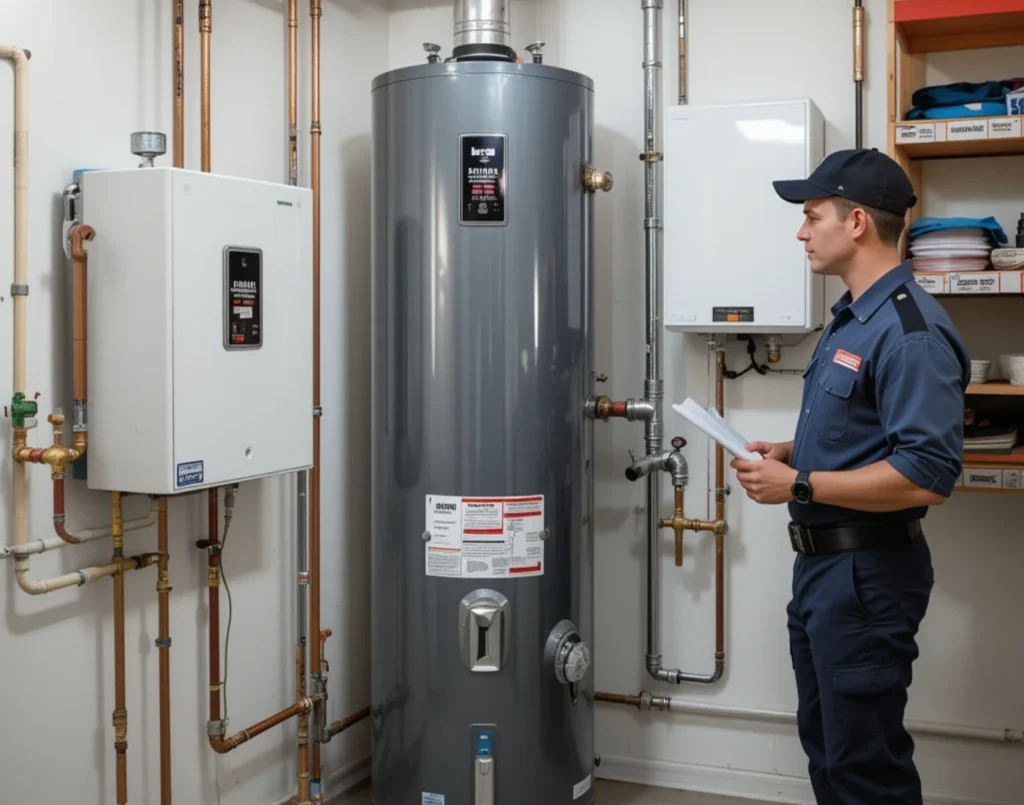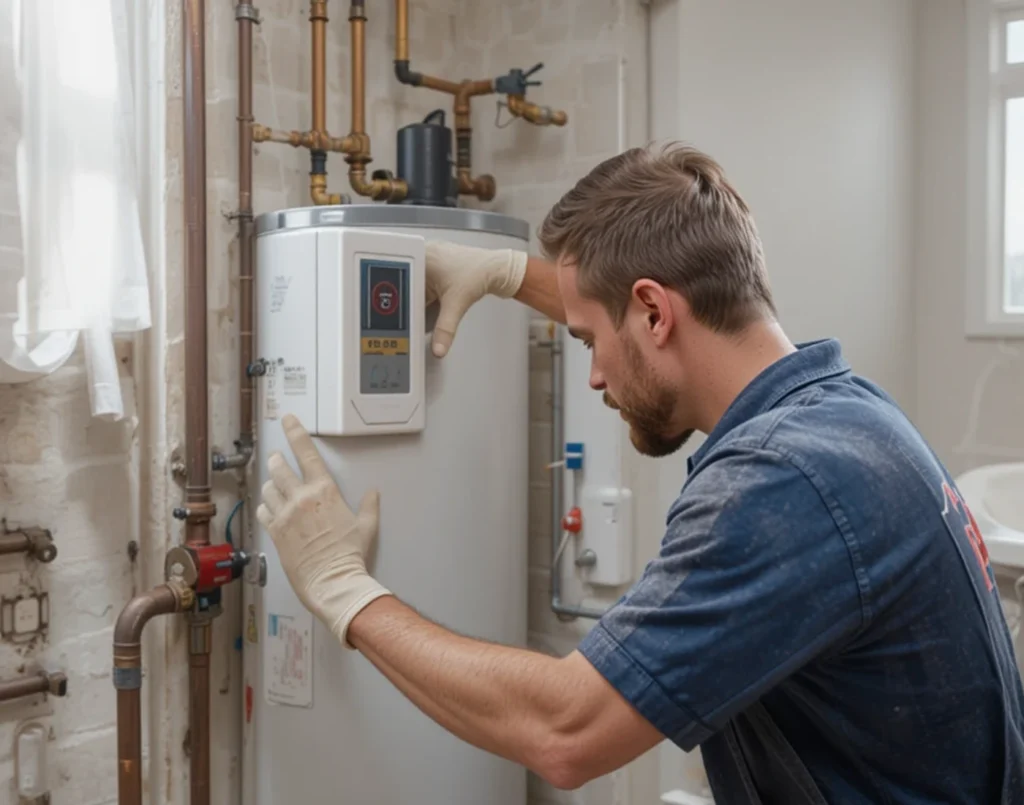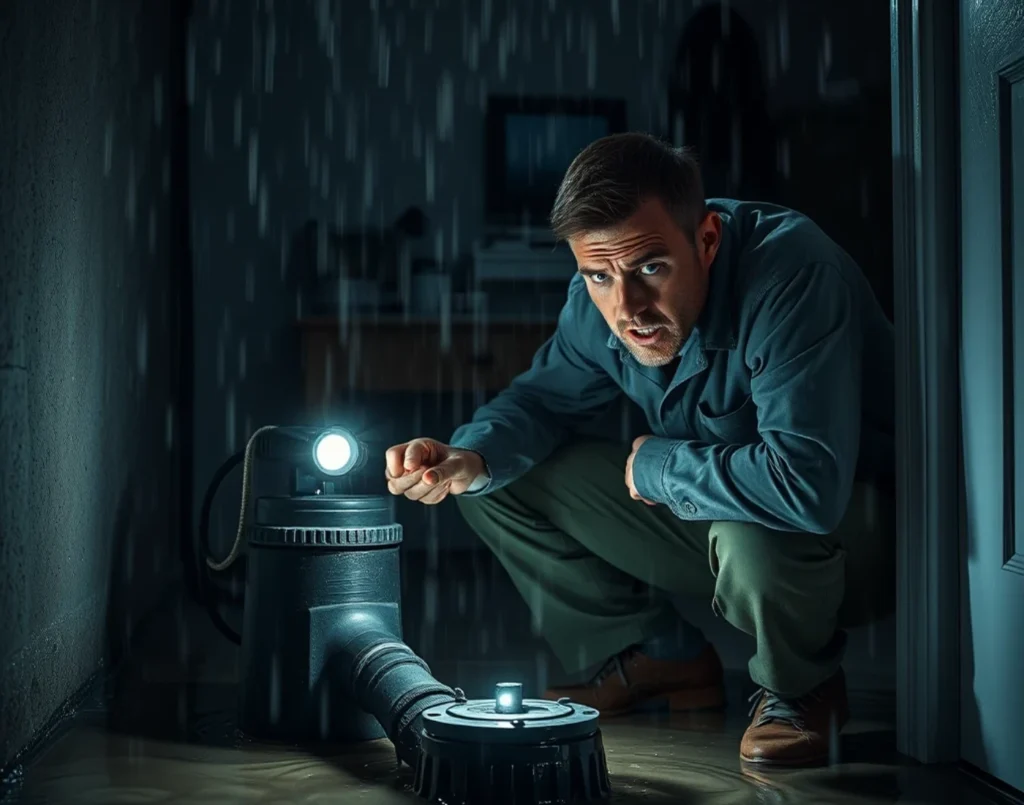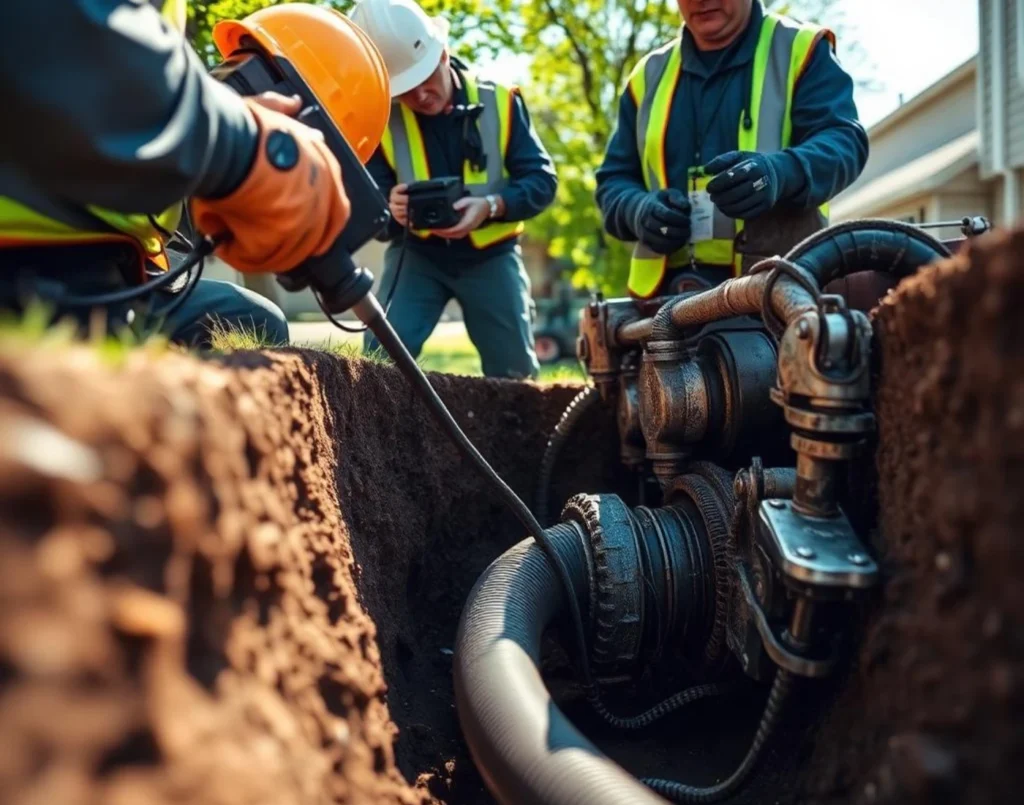Water Heater Replacement becomes essential when your system shows signs like leaks, inconsistent water temperature, or unusual noises. Acting on these warning signals early can make your water heater replacement smoother, help you avoid expensive repairs, boost energy efficiency, and maintain a reliable hot water supply for your home.
Water heater replacement is crucial when your system shows signs of failure, like inconsistent hot water, strange noises, or visible leaks. This expert 2025 homeowner guide explains how to spot early warning signs, choose the right replacement, and prevent costly water damage. Whether you live in [Terrace, Los Angeles, USA.], our insights help you make informed decisions, improve energy efficiency, and ensure an uninterrupted hot water system for your home. Designed for quick reading and voice search optimisation, this guide delivers trusted, local advice you can act on today.
When Water Heater Replacement Is More Cost-Effective Than Repair
Avoid expensive water damage:
- Replacing your water heater before it breaks can help prevent water damage. This protects your floors, walls, and valuables.
- Leaking tanks often lead to repair bills that cost thousands of dollars.
- Planned replacement means you won’t be without cold showers or a broken routine.
- You can compare brands, find better prices, and install at your convenience. Plus, you won’t paywon’tgency service rates.
- Modern water heaters are made to consume less electricity.
- Upgrading an old unit early can cut your monthly utility costs. It also provides more reliable hot water performance.
The Hidden Dangers of Ignoring an Old Water Heater
If repairs are frequent and costly, replacing your water heater may be a smarter long-term investment than continued maintenance. Older water heaters, usually 8 to 12 years old, can fail without warning. A broken tank may release 40 to 80 gallons of water in minutes, causing flooding. These old systems waste energy and are prone to breakdowns. This may cause big problems, like gas leaks or pressure buildup. Replacing your water heater on time protects both your home and your family.
Rusty water from taps signals internal tank deterioration
Your hot taps rusted after, indicating severe tank deterioration. This discolouration often means metal particles are affecting water quality and taste.
Your water heater helps prevent corrosion. It does this by attracting rust-causing substances. Once it’s depleted, the tank starts to deteriorate quickly.
- Watch for rust-colored water from hot taps
- Check for metal particles in the shower water
- Test water from multiple faucets to confirm the source
Common Signs You Should Replace Your Water Heater
Water Leaking from the Bottom of the Tank
Puddles or water stains forming around the base of your water heater are early warning signs of a compromised tank or a failing pressure relief valve. These leaks might seem minor initially, but they often worsen over time, potentially leading to significant water damage or flooding. You might notice moisture or dampness collecting near the unit, rust developing around pipe connections, or white, chalky mineral buildup near joints, often caused by hard water deposits. Addressing these issues early can help prevent a full system failure and avoid costly repairs to your flooring or walls.
Rusty Discoloured Hot Water
Rust-colored, brown, or reddish hot water is often a warning that Water Heater Replacement may be needed. This discolouration usually results from internal corrosion inside the tank, often caused by a worn-out anode rod that no longer prevents rust buildup. Once corrosion starts, it can spread quickly, staining sinks, tubs, and laundry and affecting water quality. More importantly, rusty water signals that your current unit may be close to leaking or completely failing. Acting early with a Water Heater Replacement can help you avoid costly damage, maintain safe water quality, and ensure a reliable hot water supply for your home.
Metallic Odour or Taste in Your Hot Water
A metallic smell or taste in hot water indicates advanced corrosion.
This can result from:
- Worn-out internal parts
- Tank wall corrosion
- Mineral interaction with ageing components
Your water heater is over 10 years old
Check the manufacture date using the serial number. Tank-style heaters typically last 8–12 years. If your unit is older, you’re at risk of sudden failure and higher utility bills. Upgrading through a professional water heater service ensures reliable performance and lower energy bills for years.
Why You Should Proactively Replace Your Water Heater
- Prevents the stress and expense of an unexpected breakdown.
- Allows you to plan the replacement on your schedule, avoiding emergency repairs.
- Reduces the risk of water damage caused by sudden failure.
- Opportunity to upgrade to a more energy–efficient model, lowering utility bills over time.
- Newer models may qualify for rebates or tax credits in many regions, offering financial incentives.
- Planning provides peace of mind and long-term savings.
Inconsistent Water Temperature
If your water temperature frequently fluctuates between hot and cold, it may point to underlying issues within your water heater. Common culprits include failing heating elements, malfunctioning thermostats, or a buildup of mineral sediment that insulates the heat source and reduces efficiency. These problems impact comfort and signal that your unit may be nearing the end of its lifespan. Water heater Replacement is necessary when your unit shows signs like leaks, strange noises, or poor heating. Recognising these signs early can save money and improve your home’s condition.
Strange noises coming from the Tank
Strange noises from your water heater, like rumbling, banging, or crackling, often signal trouble. They could mean sediment buildup, mineral deposits, or worn parts. These issues strain the system, raise energy use, and shorten its lifespan. If your heater is old and showing these signs, replace it. An energy-efficient model can boost reliability and lower energy costs by up to 30%.
Causes of high energy use:
- Inefficient insulation
- Damaged thermostats
- Sediment reduces heat transfer
Benefits of Upgrading to a Modern Water Heater
Advantages of Switching to Tankless Systems
Tankless water heater installation gives you hot water when you need it. They cut down on standby energy loss and save space. The upfront cost may be high. However, the long-term savings and performance often make it worth it.
Key benefits:
- 15–20 year lifespan
- Lower monthly energy costs
- Unlimited hot water when sized properly
- Wall-mounted, space-saving design
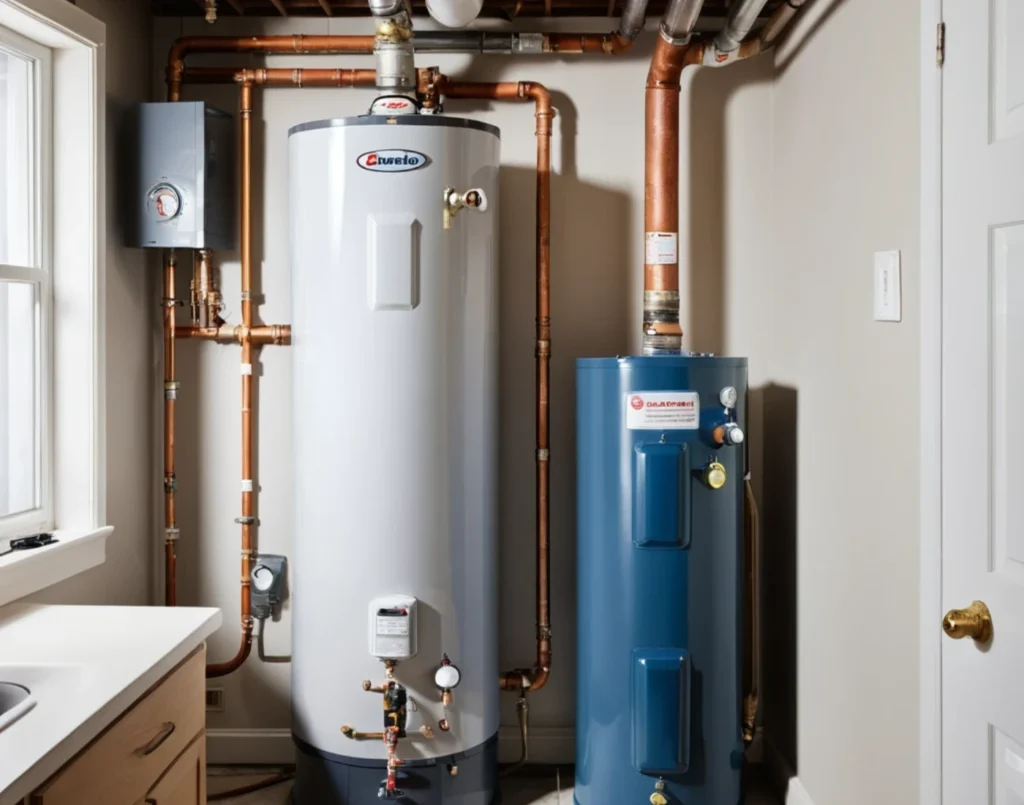
Modern heaters offer better energy efficiency.
Today’s heaters have better insulation, new heating elements, and digital controls. These upgrades make them more efficient than older models.
Features of Energy-Efficient Water Heaters
Modern energy-efficient water heaters offer advanced features that reduce utility costs and environmental impact. Smart temperature controls allow precise adjustments and even remote operation, helping you use only the energy you need. Many models include thick tank insulation, which minimises heat loss and improves overall efficiency. Look for units with Energy Star certification, which meet strict efficiency standards and may qualify for rebates. Enhanced heat exchangers in high-efficiency models transfer heat more effectively, speeding up water heating while using less power. These features make energy-efficient systems a smart long-term investment.
Safety Features You Should Look For
Modern systems have pressure relief valves, sealed combustion chambers, and auto shut-off sensors. These sensors help detect leaks. These features protect your home and improve peace of mind.
Examples of improved safety:
- Advanced combustion venting for gas units
- Leak detectors with auto shut-off
- Earthquake straps and drainage pans
What to Consider Before Replacing Your Heater
Choosing Between Tank and Tankless Models
When planning a Water Heater Replacement, deciding between a traditional tank system and a modern tankless model is one of the biggest choices. Both options have unique benefits based on your budget, available space, and hot water demands. Tank water heaters generally cost less upfront and are simpler to install, making them a reliable choice for many homes. In contrast, tankless water heaters deliver hot water on demand, use energy more efficiently, and often have a longer lifespan. A tankless water heater replacement can be an excellent investment for households seeking continuous hot water and reducing long-term utility costs.
Making the Right Choice for Your Home’s Needs
Selecting the right Water Heater Replacement starts with evaluating your household’s needs. Consider family size, hot water usage habits, and your budget. Explore different water heater replacement options from reputable brands, comparing warranty terms, energy efficiency ratings, and customer feedback. Investing in a high-quality Water Heater Replacement ensures better long-term performance, lower maintenance costs, and reliable service for years to come.
Set up a service appointment with a skilled technician. They will check your system and suggest suitable replacement options. A professional assessment ensures you choose the right size and type for optimal performance.
Do you have enough space for installation?
Preparing Your Space for a New Water Heater:
- Ensure there’s enough floor or wall space, especially if switching between tank–style and tankless models.
- Confirm that gas or electric lines are easily reachable.
- Avoid the need for expensive rerouting of utilities.
- Especially important for gas water heaters, which require safe venting to the outside.
Budgeting for Replacement Costs
Water Heater Replacement costs for traditional tank systems typically range from $1,200 to $3,500. If you opt for a tankless water heater replacement, expect to pay between $2,500 andUsing local rebates and energy-saving incentives, you can reduce the 000. You can often lower the overall water heater replacement incentives.
Factors affecting cost:
- Unit type (gas, electric, tankless)
- Required upgrades (vents, wiring, piping)
- Permits and labour
Final Thoughts and Expert Recommendations
Don’t wait for a breakdown. Schedule a Water Heater Replacement inspection if your unit is ageing or showing signs of trouble. Acting early on a water heater replacement can save repair costs, protect your home from damage, and ensure you enjoy consistent hot water throughout the year.
Take Action to ensure reliable hot water service
- Avoid unexpected breakdowns that can disrupt your household routine.
- Spotting warning signs early allows for timely planning and replacement.
- Prevents emergencies that often come with higher repair or installation costs.
Frequently Asked Questions
1. How much does it cost to replace a water heater?
The cost to replace a water heater typically ranges from $900 to $3,500 in 2025, depending on the type, size, and installation complexity. Standard tank models are usually less expensive, while tankless systems cost more due to advanced technology and installation requirements.
2. What is the average labour cost to install a 50-gallon water heater?
In 2025, the average labour cost to install a 50-gallon water heater ranges from $300 to $800, depending on your location and the job’s difficulty. Your rates may be higher in urban areas or during emergency installation.s
3. Why is it so expensive to install a water heater?
Water heater installation costs can feel high because they include more than just the unit itself. Professional installation involves skilled labour, permits, safety inspections, and potential modifications to plumbing or electrical systems.
4. Does homeowners’ insurance cover water heater replacement?
Most homeowners’ insurance policies do not cover water heater replacement due to wear and tear or age-related breakdowns. However, if your water heater is damaged by a covered peril such as a fire or certain water damage, your policy may help pay for a replacement.
5. How much does a Home Depot or Lowe’s water heater installation cost?
In 2025, Home Depot and Lowesy charge between $450 and $1,500 for professional water heater installation, depending on the unit type and complexity of the setup.


